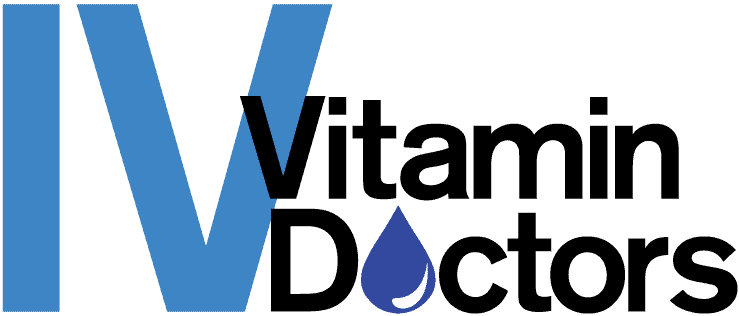Cancer is a serious health challenge that can be prevented with the help of a promising nutrient. This nutrient stands out in the pursuit of better health and disease prevention.
Vitamin D often hailed as the “Sunshine Vitamin,” is increasingly recognized for its critical role in bone health and immune function and its potential in cancer prevention.
This blog delves into the fascinating world of Vitamin D and its emerging reputation as an anti-cancer vitamin.
We’ll explore the science-backed evidence linking Vitamin D to reduced cancer risk, its mechanisms of action in the body, and how optimizing your Vitamin D levels could be a key strategy in your holistic health arsenal against cancer.
Join us as we uncover the powerful connection between Vitamin D and cancer prevention.
Understanding Vitamin D
Vitamin D, often called the “Sunshine Vitamin,” is pivotal in numerous bodily functions and essential for overall health, and the deficiency can cause numerous damages.
Understanding what Vitamin D is, how it is produced, and its critical roles in the body can help underscore the importance of maintaining adequate levels of this vital nutrient.
What is Vitamin D?
Vitamin D is a fat-soluble vitamin that exists in two primary forms: D2 (ergocalciferol) and D3 (cholecalciferol). Vitamin D3 is synthesized in the skin in response to sunlight, specifically ultraviolet B (UVB) rays, and is also found in certain animal-based foods.
Vitamin D2 is primarily obtained from plant sources and fortified foods. Both forms are biologically inert and must undergo two hydroxylations in the body — the first in the liver to form 25-hydroxyvitamin D (25(OH)D), and the second in the kidney to form the physiologically active 1,25-dihydroxyvitamin D (1,25(OH)2D).
Sun exposure is a significant source of Vitamin D for most people. The skin houses a type of cholesterol that functions as a precursor to Vitamin D. When this precursor is exposed to UVB rays, it is converted into Vitamin D3. However, the amount of Vitamin D synthesized depends on several factors, including the time of day, skin pigmentation, age, geographic location, and sunscreen use.
Dietary sources of Vitamin D include fatty fish like salmon, mackerel, sardines, fish liver oils, egg yolks, and fortified foods such as milk, orange juice, and cereals. Despite these sources, obtaining sufficient Vitamin D from diet alone can be challenging, highlighting the importance of sun exposure and, in some cases, supplementation to meet the body’s Vitamin D needs.
Vitamin D and Cancer Prevention
The role of Vitamin D in cancer prevention has garnered significant attention in the medical community, with numerous studies investigating its impact on various types of cancer.
A growing body of evidence suggests that maintaining adequate levels of Vitamin D may be associated with a reduced risk of developing certain cancers, including breast, colon, and prostate cancer.
Research published in the Journal of the National Cancer Institute found that higher Vitamin D levels were associated with a lower risk of colorectal cancer. Similar studies have shown that women with sufficient Vitamin D levels have a reduced risk of breast cancer compared to those with low levels.
Furthermore, observational studies have linked higher Vitamin D levels with lower rates of prostate cancer, indicating a potential protective effect across a spectrum of cancers.
These findings are supported by meta-analyses that consolidate data from multiple studies, highlighting a trend where higher Vitamin D concentrations correlate with reduced cancer incidence and better outcomes in cancer patients.
However, it’s important to note that while the association is strong, causality and the optimal Vitamin D levels for cancer prevention are still under investigation.
Mechanisms of Action
Understanding how Vitamin D may contribute to cancer prevention involves delving into its biological mechanisms of action. Vitamin D exerts its effects through several pathways, each playing a part in reducing cancer risk:
- Cell Growth Regulation: Vitamin D influences cell growth and development. It binds to Vitamin D receptors (VDR) present in various cell types, including cancer cells, regulating genes involved in cell proliferation. By modulating the expression of these genes, Vitamin D can inhibit the uncontrolled growth of cells, a hallmark of cancer.
- Apoptosis (Programmed Cell Death): Vitamin D’s ability to induce apoptosis in cancerous cells is another crucial mechanism. Apoptosis is a process of systematically dismantling and removing damaged or unwanted cells. Vitamin D promotes apoptosis, helping to eliminate potential cancer cells before they can accumulate and form tumors.
- Immune Support: Vitamin D is crucial in supporting the immune system. It enhances the ability of immune cells to differentiate between normal and cancerous cells, improving the body’s capacity to target and destroy cancer cells. Vitamin D modulates immune responses, reducing inflammation, which is linked to a reduced cancer risk.
- Anti-Angiogenesis: Cancer tumors need blood vessels to supply nutrients for their growth. Vitamin D has been shown to inhibit angiogenesis, the process by which new blood vessels form, thereby limiting the nutrient supply to tumors and hindering their growth.
Optimizing Vitamin D Levels for Cancer Prevention
Maintaining optimal Vitamin D levels is crucial for overall health and may play a role in preventing various types of cancer. However, achieving and sustaining these levels can be challenging due to several factors:
- Limited Sun Exposure: The body synthesizes Vitamin D when the skin is exposed to sunlight, specifically UVB rays. Modern lifestyles often limit time spent outdoors, and the use of sunscreen, while necessary for preventing skin cancer, also blocks UVB radiation, reducing Vitamin D synthesis. Geographic location, season, and time of day further influence UVB exposure and Vitamin D production.
- Age: The skin’s ability to produce Vitamin D diminishes as we age. Older adults are at a higher risk of Vitamin D deficiency due to this decreased efficiency and often spend less time outdoors.
- Skin Color: Melanin, the pigment that gives skin its color, naturally protects against UV radiation but also reduces the skin’s ability to produce Vitamin D. Individuals with darker skin need more prolonged sun exposure to synthesize the same amount of Vitamin D as those with lighter skin, making deficiency more common in populations with darker skin tones.
- Dietary Intake: Very few foods naturally contain significant amounts of Vitamin D. Fatty fish, egg yolks, and fortified foods such as milk and cereal are among the primary dietary sources. Individuals who follow a vegan diet or have allergies, intolerances, or other dietary restrictions may need help to obtain sufficient Vitamin D from their diet.
These challenges highlight the need for conscious efforts to ensure adequate Vitamin D levels, especially for individuals at risk of deficiency.
The Role of Supplementation and Diet
Given the difficulties in maintaining optimal Vitamin D levels through sun exposure alone, supplementation and diet play vital roles in preventing deficiency:
- Diet: Incorporating Vitamin D-rich foods into your diet is a natural way to boost your levels. Fatty fish like salmon, mackerel, sardines, and fish liver oils are among the best sources. Eggs, particularly the yolks and mushrooms exposed to sunlight, contribute to dietary intake. For vegetarians and vegans, fortified foods, including plant-based milk alternatives, fortified cereals, and orange juice, become an essential source of Vitamin D.
- Oral Supplements: For many, dietary sources alone may not be sufficient to achieve optimal Vitamin D levels. Oral supplements offer a viable solution in various forms, such as Vitamin D2 (ergocalciferol) and Vitamin D3 (cholecalciferol). D3 is often recommended as it is the more potent form of the vitamin and is identical to the Vitamin D produced by the body. Supplementation should be tailored to individual needs based on factors like age, geographic location, skin color, and existing Vitamin D levels, ideally under the guidance of a healthcare provider.
- Testing and Monitoring: Regular blood tests can monitor Vitamin D levels, helping to adjust dietary intake and supplementation as needed. This personalized approach ensures that individuals maintain adequate levels to support their health, including potential cancer prevention benefits.
IV Vitamin Therapy – A Modern Solution
IV Vitamin Therapy represents a cutting-edge approach to nutritional supplementation, offering a direct and efficient method to elevate Vitamin D levels, among other nutrients.
Unlike traditional oral supplements, IV Vitamin Therapy administers vitamins directly into the bloodstream through an intravenous line.
This innovative treatment bypasses the digestive system, which can sometimes act as a barrier to the absorption of nutrients, ensuring that the body receives the full benefit of the vitamins administered.
Benefits of IV Vitamin Therapy for Vitamin D Replenishment
The advantages of IV Vitamin Therapy for Vitamin D replenishment are manifold, making it an attractive option for those seeking to optimize their vitamin levels for health and cancer prevention:
- Direct Absorption: By delivering Vitamin D directly into the bloodstream, IV Vitamin Therapy circumvents the potential absorption issues associated with the gastrointestinal tract. This ensures that patients receive the full dosage of the vitamin, providing immediate and more predictable results.
- Achieving Optimal Levels Reliably: IV Vitamin Therapy allows healthcare providers to tailor dosages precisely to the individual’s needs based on their current Vitamin D levels, lifestyle, and health goals. This personalized approach helps achieve and maintain optimal Vitamin D levels more reliably than oral supplements, which may need to be fully absorbed or could vary in their effectiveness from person to person.
- Customization of Treatments: Beyond Vitamin D, IV Vitamin Therapy can be customized to include a cocktail of vitamins and minerals tailored to the individual’s specific health requirements and goals. This means treatments can simultaneously address multiple deficiencies, supporting overall health and well-being and targeting Vitamin D levels.
IV Vitamin Therapy in Integrative Cancer Prevention Strategies
In the context of cancer prevention, IV Vitamin Therapy offers a valuable tool that complements both conventional and alternative medical approaches.
Integrative cancer prevention strategies recognize the importance of a holistic approach to health, where optimizing nutritional status plays a crucial role in supporting the body’s natural defenses against cancer.
- Supporting Immune Function: Vitamin D is known for its role in immune support and regulation, which is crucial in the body’s ability to prevent and fight cancer. By ensuring optimal Vitamin D levels through IV Vitamin Therapy, individuals may enhance their immune system’s effectiveness as part of a broader cancer prevention strategy.
- Synergy with Conventional Treatments: For those undergoing conventional cancer treatments, IV Vitamin Therapy can help address nutritional deficiencies that may arise due to the side effects of chemotherapy or radiation. This supportive care can improve patients’ overall dietary status, potentially enhancing the effectiveness of conventional treatments and supporting recovery.
- Holistic Health Benefits: Beyond cancer prevention, the holistic approach offered by IV Vitamin Therapy supports overall health and well-being. By addressing nutritional deficiencies, reducing inflammation, and supporting immune function, IV Vitamin Therapy contributes to a foundation of health that can help ward off cancer and other diseases.
IV Vitamin Therapy stands out as a modern, efficient solution for replenishing Vitamin D and other vital nutrients, supporting cancer prevention efforts, and promoting overall health holistically and personally.
As part of a comprehensive health strategy, it offers a promising avenue for those looking to optimize their health and prevent disease through nutritional excellence.
Final Words
As we’ve journeyed through the illuminating role of Vitamin D in cancer prevention, it’s clear that this sunshine-derived nutrient holds a promising place in our holistic health toolkit.
The evidence we’ve explored underscores the importance of maintaining optimal Vitamin D levels for bone and immune health and as a proactive measure against cancer. While the fight against cancer involves a multifaceted approach, ensuring adequate Vitamin D intake through sunlight, diet, and possibly supplementation emerges as a simple yet powerful strategy.
Embracing the potential of Vitamin D in cancer prevention empowers us to take actionable steps towards safeguarding our health. Let’s harness the power of the sunshine vitamin in our collective journey towards wellness and resilience against cancer.


